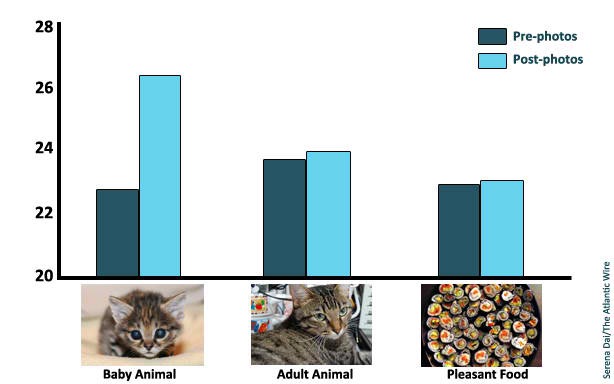Your Cart is Empty


Everyone wants to be productive.
It is a key part of measuring performance and doing quality tasks. Have you ever wondered how some people seem to be always doing tons of work despite the fact that they have the same number of hours in a day as you?
I’ve spent the last few weeks reviewing journals and reading expert advice on how to be more productive and in this blog post, I’m going to share with you what I’ve learned. The insights here changed my life and I’m positive that they’ll have the ability to do the same for you.
Let’s get to it.

A common misconception in regards to productivity is that the more you do at once, the greater you accomplish. This sounds logical, but this comes with a cost—you are likely compromising quality over quantity. A 2009 study by researchers in Stanford has shown that multitasking actually hurts your brain and results in the decrease of your IQ points.
The allure of answering emails and notifications is tempting but during work hours, it’s better to allow a specific time in the day to check email and messages. Frequent interruptions such as checking your email multiple times a day led to participants losing as much as 10 points which is pretty much equivalent to losing a night of sleep.
Although multitasking is a widespread phenomenon, it has been shown that multitasking affects work negatively on the whole since people tend to make more mistakes when juggling things simultaneously. Make it a habit to commit to a single task before going on to do another job.
[Infographic Source]
Research done by Harvard and the Federal Aviation Administration prove that napping does a lot for your productivity. After a well-rested nap, you commit fewer mistakes and are generally more efficient. In the study, it was revealed that the length of nap is also vital—the optimum time should be around 10 to 15 minutes of sleep (or 20 minutes at most). Any longer and you’re bound to feel less alert and drowsy.
Power naps boost your cognition, memory, alertness, and reaction times. More than just the workplace and performance benefits, having enough sleep is good for your brain as well as your overall physical and mental health.
Exercise has a long list of benefits and you can now include productivity to that list. A study by researchers at Stockholm University found out that participants who exercised had a marked improvement in how much they’re getting done despite working the same hours previously, largely due to stamina increase. There was also a reduced rate of absenteeism due to sickness. Getting your blood pumping may just be the thing that you need in order to get your focus back.
Another reason why exercise increases productivity is because it improves memory and keeps you mentally sharp since it facilitates the generation of new brain cells in your hippocampal region. This slows down the loss of brain cells associated with aging.

It’s an all too common work ethic to work hard and to work longer. Often enough, we associate industriousness with all-nighters and marathon overtime sessions. What research really says about productivity is that working more hours doesn’t necessarily mean better work. The Draugiem Group study revealed that perfect performance ratio is in fact, less than an hour only. Since the brain is a muscle, it also gets exhausted from repeated stress.
Our ability to perform and do tasks diminishes over an extended duration time. This is why we need breaks in between our work sessions. It seems counterintuitive, but taking planned breaks actually does a lot for your concentration. Another study done at the University of Illinois showed that taking short breaks throughout, particularly long tasks aids in maintaining a steady level of performance. Conversely, working at a task without any breaks results in a constant decline in performance.
So what’s the ideal length for a break? Seventeen minutes, according to the Draugiem Group study.
Although there at countless distractions at work that can potentially derail your focus, listening to music—the kind that you like—can spike up your productivity level. A study on how listening to music affected work performance revealed that music makes typical, boring tasks easier by making you feel lively while doing them. Simply put, it improves your mood and it also triggers the reward area of your brain so your mind is less likely to wander.
The study revealed that those who listened to music finished their work faster and had better ideas compared to those who did their tasks without music. Essentially, this tells us that music has the capacity to inspire a better, more positive mood even when we’re working.
You now have an excuse when your boss catches you browsing kitten pictures on the job: research showsthat looking at cute images can actually improve performance at work.
This study was done in Japan and revealed that cute or “kawaii” photos of cute animals promote a more fine-tuned, careful kind of attention. In the research, the images of cute animals have been tested against viewing adult animals and pleasant food.

More than just raising your productivity, checking out cute pictures also encourage friendliness since the improvement in concentration and focus can be transferred to social situations. For the reason that adults typically slow down their speech when talking to babies, Japanese researchers theorized that viewing cute photos have a similar effect.
Whether you’re looking to improve the quality of your work or want to be able to just do more, these studies are definitely worth considering. From turning up the bass to spending a few minutes browsing /r/awww on Reddit – these strategies are sure to help you hustle through moments of despair.
What works best for you when you’re trying to be productive? Do you have any productivity hacks or tricks we should know about?
Comments will be approved before showing up.